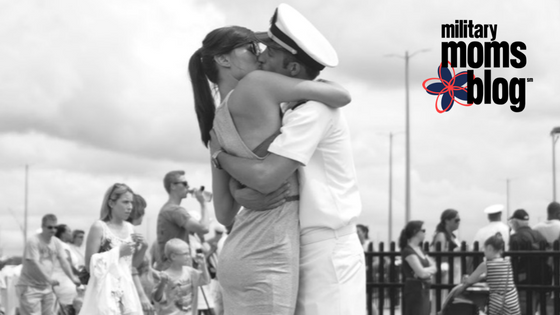My oldest daughter had a rough week. She said goodbye to her first boyfriend, as his family moved to another state. She also said goodbye to her best friend. This has been a long summer of farewells, tears, and heartache as many of her friends have moved this summer.
It is that time of year for military families: PCS season. We think of this as a period of moving trucks and boxes; logistics and planning; selling and buying; and hails and farewells. It is a stressful time for the entire family, but I always assumed that my husband and I shouldered most of the burden.
But as I watch my teenager cry and anguish over these painful moments, I am realizing that I was wrong. Our kids share the burden of goodbyes but in different ways.
Perhaps I thought that my kids were just used to this life.
Maybe I assumed that she was preparing herself for all these painful moments. I mistook her stiff upper lip and smiles for acceptance. I always balance the positives (travel, culture, experience) with the negatives (moving, frequent separations, isolation). And I reassured myself that she was fine with the inconsistencies and struggles of this life.
But I am humble enough to admit that I was wrong.
She is angry and frustrated. She is sad and emotional. She loves this family but does not love this life, something that we chose for she and her siblings.
She told me, “This is the worst part of military life. My friends all leave.”
Talk about a punch to the gut of brutal honesty.

This is a hard season for our military kids, especially our teenagers. According to Military Benefits, there are approximately 1.7 million military children in the world, and they will move three times more than children outside of the military, some as often as every two to three years.
As children grow older, they develop stronger bonds and friendships with their peers. Moving away or saying goodbye to a friend, while commonplace for military children, is still very stressful.
And teenagers are particularly prone to stress. Their brains are still developing, their hormones are on overdrive, and their emotions are fluctuating. These adolescents are worried about grades and college while they grow and learn who they are as individuals.
For a military teenager, there are the additional stressors and worries. Will I move during high school? Will I ever see my friends again? What if I’m the new kid – again? Add all these things together, and you can see how this is a difficult time for a military teenager.
As much as I try, I cannot help my daughter in these moments.
I remember being a teenager, but I was never a military child. I lived in the same town and attended mostly the same schools from elementary to high school. I lost friends due to arguments, not because they moved out of the country. Everything around me was familiar, even if I was growing and changing. My childhood was pretty consistent.
As parents, we always want to help. How do I empathize with my daughter? What can I say or do that will make yet another move hurt less? I finally realized that it’s simple: I cannot fix it.
I can listen. I can hear her frustration and anger about how unfair military life is and not try to defend or justify it. I can offer support and love without judgment. When she tells me how she hates this life, this life her father and I work hard to provide, I can try to not take it personally. I can remember how it feels when I say goodbye to good friends at every assignment and cut her a little slack. It’s OK to be upset.
As a parent, I will do what I can to make this easier. Whether this ranges from a shoulder to cry on to reliable wifi for long distance video chats, I can make it work. As much as I wish I could make this better, I cannot. The goodbyes are part of military life. You may not love it; you may even hate it; but it is our life.
I do not know what it is like to be my daughter, but I do know this: goodbyes just suck.
I hate them, and I never get used to them. I know she will not either. So my sweet teenager, sulk in your room; cry for hours; yell about how unfair it is. It’s OK. It’s a rough season, but I’m here when you are ready.










